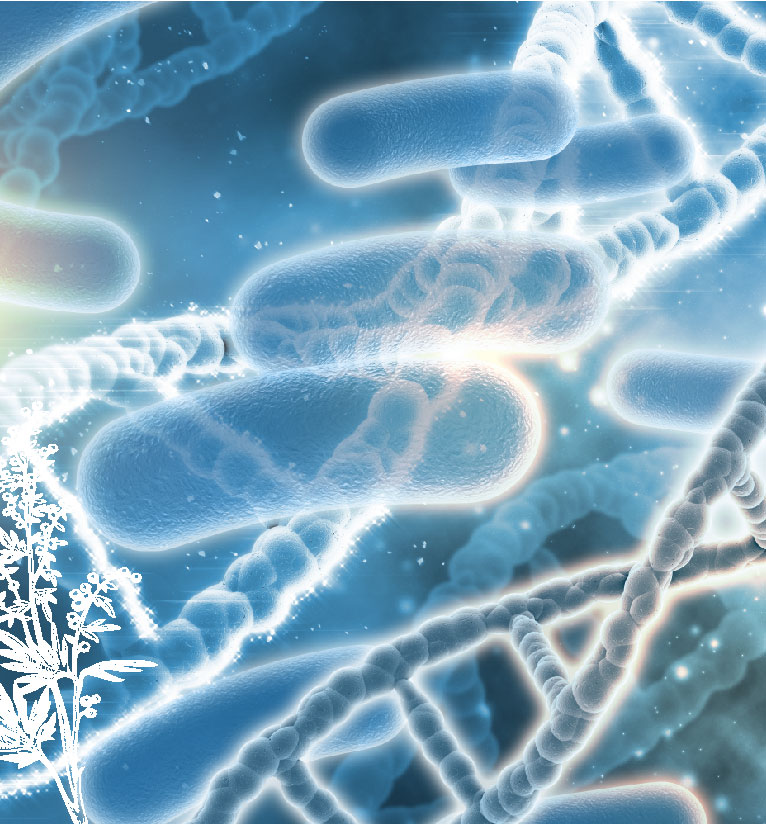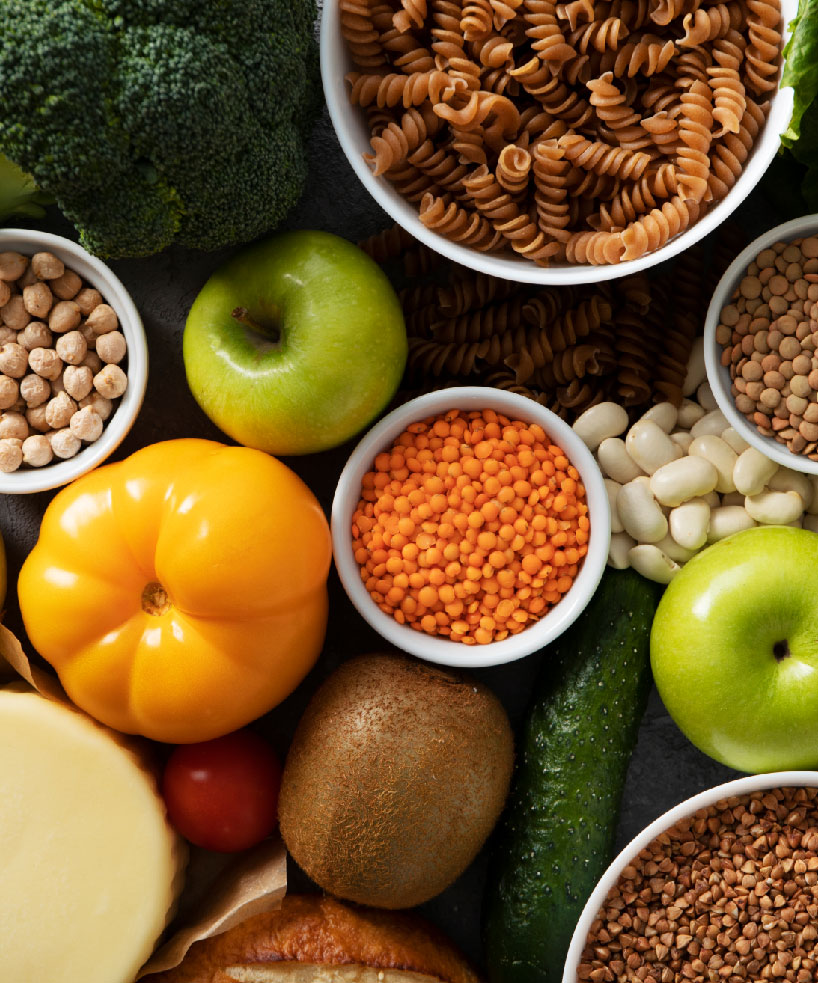
The secrets of intestinal well-being
The microbiota, that fascinating and complex universe that resides within us, plays a crucial role in our health and well-being. Let’s delve into the mysterious world of the billions of micro-organisms that live together in harmony in our bodies.

WHAT IS THE MICROBIOTA?
The microbiota, also known as the intestinal flora, is made up of various micro-organisms (bacteria, viruses, fungi, etc.) essential to our health, residing mainly in the intestine. They play a crucial role in digestion, vitamin synthesis, protection against pathogens and even in regulating the immune system.
A balanced microbiota promotes good health, while an imbalance can contribute to a variety of diseases.

THE MICROBIOTA’S ALLIES
Probiotics and prebiotics play an essential role in maintaining a healthy microbiota.
Probiotics are live micro-organisms which, when ingested in sufficient quantities, provide health benefits, particularly by improving the balance of the intestinal microbiota.
They are found in fermented foods such as yoghurt, kefir and sauerkraut.
Prebiotics, on the other hand, are non-digestible fibres that serve as ‘food’ for probiotics.
They are found in foods such as bananas, garlic, onions, asparagus and artichokes. Or in the form of food supplements.
Together, probiotics and prebiotics work synergistically to support a healthy intestinal microbiota.


FOCUS FIBRES
Dietary fibre, essential for a healthy microbiota, is divided into two categories: soluble and insoluble.
Soluble fibre dissolves in water and forms a gelatinous substance in the intestine, helping to regulate blood sugar and reduce cholesterol. They are found in oats, legumes, nuts, seeds and certain fruits and vegetables.
Insoluble fibre, on the other hand, does not dissolve in water. It helps to add bulk to stools and prevent constipation. It is found in whole grains, wheat bran and many vegetables.
A balanced diet containing both types of fibre is beneficial for digestive health and the microbiota.

Did you know ?
Did you know that each person has a unique microbiota, just like fingerprints? This uniqueness is explained by a combination of many factors, such as genetics, diet, environment and even our lifestyle.





Recent Comments